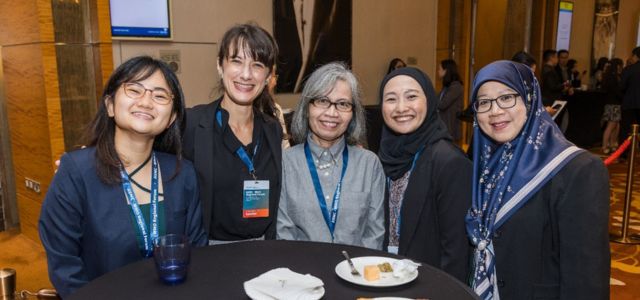This forum was held to provide a platform to consolidate regional knowledge, share outcomes, and explore how climate services can better serve adaptation needs, enhancing overall resilience to extreme weather and climate change-related hazards. It also encouraged participants to examine how climate services can better serve their adaptation needs at regional, national and local levels through more detailed climate information and impact assessments and enhance the region’s overall resilience to extreme weather and climate change-related hazards.
The forum was opened by Ms Grace Fu, Minister for Sustainability and the Environment and Minister-in-charge of Trade Relations, Singapore, who shared about the role of ASEAN Specialized Meteorological Centre that works closely with WMO seasonal and sub seasonal prediction and provide seasonal climate outlook for the Southeast Asia region. She also mentioned that Singapore is designated by WMO to develop Centre for Haze monitoring and Haze Model forecast to provide Emergency respond in Haze. Furthermore for the MoU between Singapore and FAO on climate risk food production.
In the opening ceremony, Prof. Celeste Saulo, WMO Secretary General mentioned that Southeast Asia region is one of the most impacted areas on heat wave. Observation and climate projection is critical for disaster risk. She mentioned the need to enhance capability of national climate services to improve national policy. Climate model is very crucial; however, many regions are still lace of expertise and technology of this early warning system.
During the group discussion on Food and Water, GWP SEA, represented by Interim Regional Coordinator, Mrs Louise Desrainy, mentioned the importance of water food nexus, especially the importance of early warning system for water related disaster (flood and drought prediction) for agriculture production. She addressed the importance role of climate service to support decision making in national and local level. A multi-disciplinary approach is needed on water accounting to understand the demand and water allocation for different water sectors such as water for agriculture, water for domestic and water for industry; to better manage allocation between sectors and prevent water competition.

Moreover, the current initiative that GWP SEA implementing on Water Scarcity Program in collaboration with FAO in Indonesia were shared, to support government in forming national multi-disciplinary team for water accounting and allocation and to support water scarcity action plan development in Indonesia. During the group discussion, the CREWS (Climate Resilience and Early Warning System) in collaboration with WMO to support government of Lao PDR and Cambodia in developing Drought Management Action plan and Integrated Water resources Management action plan using multi-stakeholder approach was introduced and explained.
Many recent climate studies were presented in this forum, including the Singapore’s Third National climate change study (V3) climate projection by the Centre for Climate Research Singapore (CCRS), the world’s first IPCC-AR6-based 8-km regional climate projections for Southeast Asia up to 2100 under three Shared Socioeconomic Pathways. Additionally, initiatives like the "Climatic hazard Assessment to enhance Resilience against climate Extremes for Southeast Asian megacities (CARE for SEA megacities)" and the global Early Warnings for All (EW4All) initiative were also presented.
